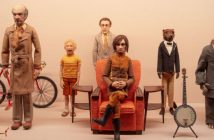Dennis Hopper was born in Dodge City Kansas in 1936 and trained in classic theatre at The Old Globe Theatre in San Diego, before moving to New York to study with Lee Strasberg at The Actor’s Studio. It was at this time that he met James Dean, and they immediately became friends. Dennis not only idolised Dean, he also learnt a huge amount from him, including lessons in acting that would remain within him forever. For example, Dean advised him, when approaching a particular scene, to simply perform an action without contemplating it in advance. “Don’t act drinking from a cup,” Dean said, “just take the drink!” Dennis was convinced that Dean’s ability to perform on-screen action, containing himself when he had to and then exploding into movement, came from his hard work in basic training as a dancer. It gave him a balletic quality that Dennis greatly admired, but was unable fully to emulate. Dean and Dennis worked on two pictures together, Rebel Without a Cause (1955) for Nicholas Ray, and Giant (1956) for George Stevens, the latter of which was merely two weeks away from the end of the shoot when Dean died. From talking with Dennis over the years, it was clear that he would continue to feel the loss of this developing friendship for the rest of his life, and in a sense would never quite recover from this premature bereavement. Dean was the reason Dennis took screen acting so seriously, Dean was why he picked up a stills camera, and Dean it was who also turned him towards the career which would obsess him for the next half century – directing films.
A few minor television roles led to an offer from Hollywood for Dennis to star in a western to be directed by notorious actor-killer Henry Hathaway. Hathaway was regarded by many as the epitome of the cigar-chomping, whip-cracking old style director who intimidated actors, particularly inexperienced ones, and this was to be Dennis’ ordeal by fire. The film was a western, From Hell to Texas (1958) and hell indeed it proved to be.
The scene was simple, a few lines only, and Hathaway gave Dennis explicit directions as to the gestures and line reading. They began at 8am in the morning and by 6pm Hathaway had rejected 85 takes and Dennis was reduced to a tearful jelly. In the meantime both the head of Universal and Jack Warner himself had called Hopper saying, “Hey, kid, what are you doing, this is Hathaway you are fucking with here!” Halfway through this farrago, Hathaway took Dennis aside and gestured to the corner of the set. “What are those?” he demanded. “Why,” Dennis replied, “they are film cans.” “That’s right, kid” responded Hathaway, “and I own 40 per cent of this studio and we’ve got enough film to shoot here for months if we need to!” Finally, on take 86 Hopper capitulated and completed the scene as Hathaway had demanded nine hours before. As he stumbled away from the set that day, Dennis also left the business (or rather the business left him) for the rest of that decade.
Eight years later – with a rapid fade-out followed by an extremely slow fade-in – Hopper is considering 100 different ways of disposing of Hathaway when he takes a call from the man himself. No announcement or even a “How are you?” just, “Hey kid, do you want to be in my next picture?” Apparently John Wayne (The Duke) and Hathaway have taken pity on Dennis because he is now married to Margaret Sullivan’s daughter Brooke Hayward, who in turn has produced a daughter of their own, Marin Hopper, and the old stagers want to give Dennis a chance to re-enter the ranks of the Hollywood blessed. According to Dennis, he is offered exactly the same part – the weakling son of a crooked father – with the same lines, motivations, western location, everything. So in front of The Duke, Hal Wallis and a line-up of the studio dignitaries on the set of The Sons of Katie Elder (1965), Dennis takes Hathaway’s instructions and line readings to the letter, and delivers the dialogue as instructed in a single take. Hathaway calls “Cut!” and goes to embrace Dennis with tears in his eyes. “That was great, kid, just great!” Dennis looks up at him and says, “You see Mr Hathaway, I’m a much better actor now.” Hathaway drags the cigar out of his mouth and says, “You’re not better kid, you’re just smarter, you’re just smarter.”
CHATEAU HOLLYWOOD
Although we had tucked ourselves into what was to become Lucida’s LA outpost for over a quarter of a century, “The Magic Motel” in West Hollywood, we spent a good deal of time at the infamous Chateau Marmont. I had known it since 1978 when I stayed there with my actor friend David Warner (in Hollywood to make Time after Time (1979)), at one of the bungalows around the pool; come to think of it I do believe it was the same one that John Belushi expired in, in 1982. It was a place redolent with history. Looking up at the illuminated façade from outside at night, you fully expected to see the ghost of Jim Morrison hanging precariously from the roof as he tried to swing himself through his bedroom window (god knows why) thereby using up, as he later said, ”one of my eight lives”. And was that Howard Hughes, light gleaming for a moment on his binoculars, as he peered at the girls in the pool from his attic apartment? I did actually see a real life Leonard Cohen relaxing under a huge sunhat in the garden, but although not an everyday occurrence, such a sight was by no means unusual.
During the time of Dennis’ 1986 hospitalisation, our film crew were not merely hanging around the Chateau, we were also busy interviewing the victims and benefactors of Dennis’ notorious approach to creativity. We especially wanted to illuminate the time between Easy Rider and the incorporation of BBS, and one who could help us was granite-jawed top studio boss Ned Tanen, then President of Universal Pictures, who had to deal with Hopper in the aftermath of his huge initial success.
By the time we spoke to him, Ned had been poached to do the same job by Paramount Pictures, so we met him on the famous Paramount lot in an executive bungalow kitted out in Native American and Mexican artefacts. Ned was a no-nonsense guy, but even he was confounded by Hopper’s next project after Easy Rider. The film The Last Movie is about how western “culture” can corrupt a primitive culture almost in a single encounter. It is based on a wonderful premise: when a Hollywood production company shooting in a primitive area (in this case Peru) moves on, the natives continue to make their own “pretend” movie with bamboo cameras and wooden props. The twist is that instead of using blanks for their gun battles, as the film company did, they use real ammunition. The problem for Ned Tanen was that Dennis had been introduced to the films of the nouvelle vague, whose philosophies of film-making were not exactly compatible with Hollywood.




